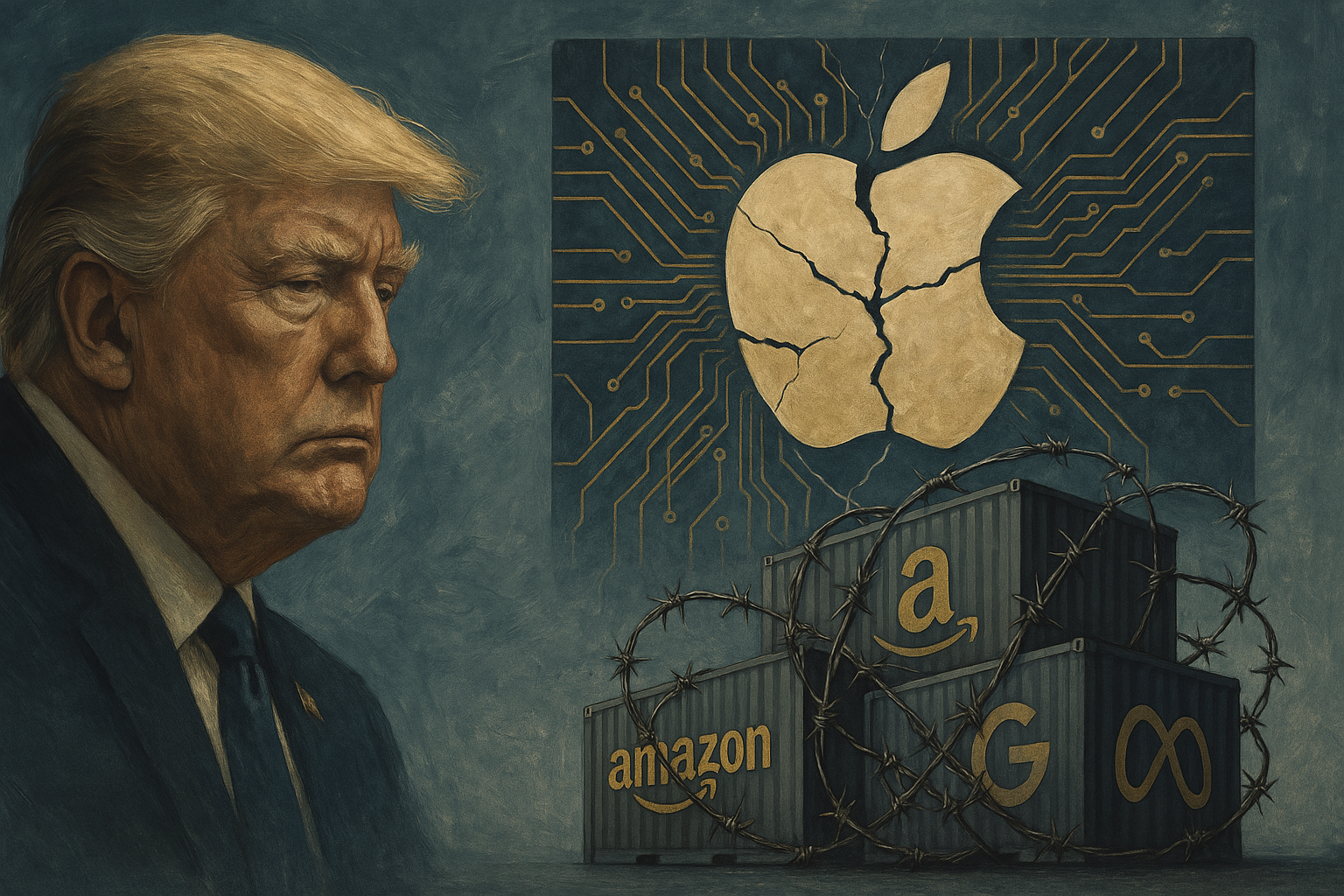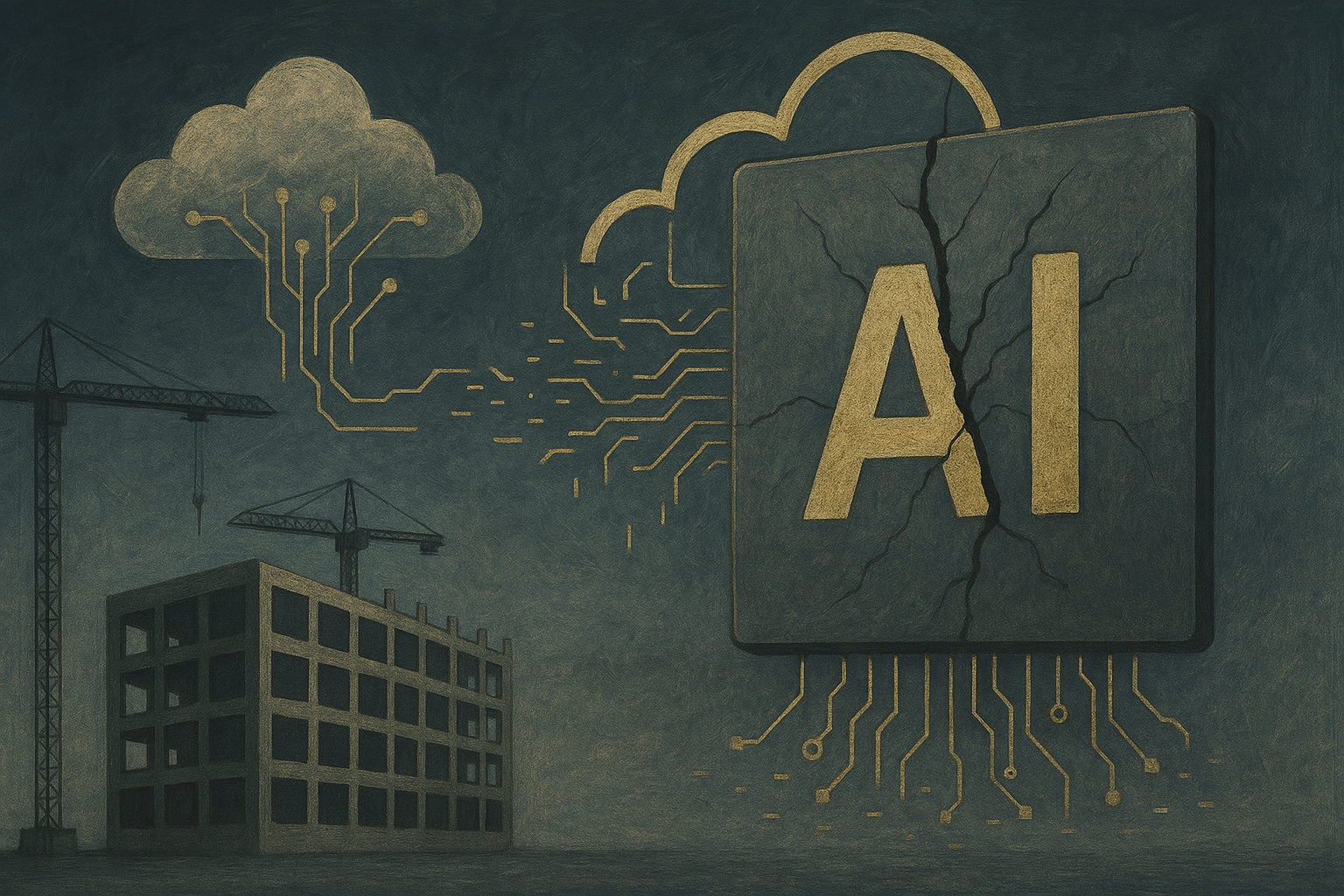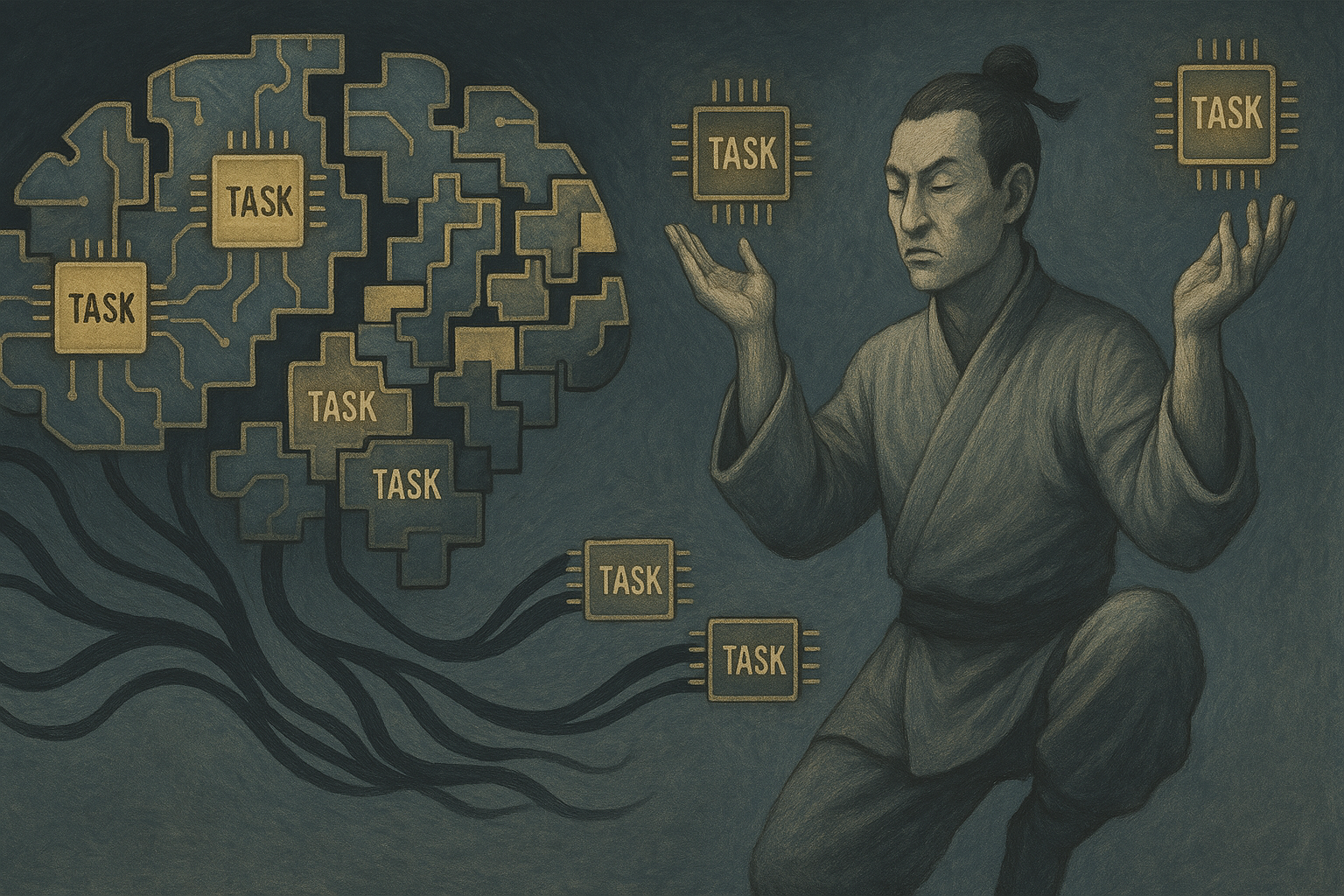🤖 AI Experts Love the Future. The Rest of Us? Not So Much.
Good Morning from San Francisco, The robots-will-save-us crowd faces a reality check. A fresh Pew survey exposes a gulf between

Good Morning from San Francisco,
Trump just lobbed a grenade into tech's supply chain playbook. His new tariffs hit Apple and friends where it hurts most - their Asian manufacturing hubs. We're talking up to 49% on imports. 💣
Apple's stock promptly nosedived 6% after hours. The rest of Big Tech followed suit. Even mighty Microsoft couldn't dodge this bullet. 📉
Speaking of Microsoft - they're hitting the brakes on their data center empire. Construction sites sit idle across six countries. Even OpenAI, their AI sweetheart, is flirting with Oracle now. Maybe those server farms aren't the cash cows everyone thought they'd be. 🏗️
Stay curious,
Marcus Schuler

Apple stock dropped 6% in after-hours trading as Trump unveiled sweeping new tariffs. The move sparked a broader tech selloff, with Nvidia down 4% and Tesla falling 4.5%.
Trump's plan hits tech companies where it hurts. The tariffs range from 10% to 49%, targeting key manufacturing hubs. China faces a 34% rate, Vietnam 46%, and India 26%. For Apple, which makes most of its devices in Asia, the impact could be severe.
The announcement hit other tech giants too. Alphabet, Amazon, and Meta all fell between 2.5% and 5%. Microsoft dipped nearly 2%. If Apple's drop holds through Thursday, it would mark the stock's biggest single-day decline since September 2020.
Trump framed the tariffs as an "economic independence" move. He announced a 10% base rate on all imports, plus country-specific duties based on their tariffs on U.S. goods. European nations face 20%, while Japan gets hit with 24%.
Former Treasury Secretary Lawrence Summers compared the tariffs to an oil crisis-level shock. He warned they would likely boost prices while cutting jobs and investment. "These are very consequential economic policies," Summers said, noting previous Trump tariffs passed costs directly to U.S. consumers.
Why this matters:
Read on, my dear:

Microsoft is pumping the brakes on its ambitious data center expansion. The tech giant has halted or delayed server farm projects across six countries, including sites in Indonesia, the UK, and multiple US states.
The company's relationship with OpenAI seems to be shifting gears. OpenAI, now valued at $300 billion, has formed new partnerships with Oracle and SoftBank, planning investments up to $500 billion in AI infrastructure. This move suggests OpenAI may be reducing its reliance on Microsoft's computing power.
Concrete evidence of the slowdown is emerging. In Wisconsin, where Microsoft poured $262 million into construction (with $40 million spent on concrete alone), parts of the project now sit idle. The company has also backed away from deals with cloud provider CoreWeave and withdrawn from talks for a London facility designed to house advanced Nvidia chips.
Microsoft maintains it will still spend $80 billion on data centers this fiscal year. But next year's spending will slow down, focusing more on equipping existing facilities than breaking new ground.
Industry experts see this as more than just construction hiccups. Some believe projected AI demand might not justify Microsoft's massive infrastructure investments. The emergence of Chinese startup DeepSeek, which created competitive AI services with fewer resources, has raised eyebrows about traditional assumptions around computing requirements.
Why this matters:
Read on, my dear:

Prompt:
老式金属壁画, Medusa wearing pink sunglasses and headphones, blowing a bubble of bubblegum, high-resolution, highly detailed digital art in the style of [Artist name].
Cyberhaven just nabbed $100 million to play hall monitor for corporate data. The startup's AI watches how employees handle sensitive files, tattling when someone copies code to unapproved tools or does anything sketchy. Turns out teaching robots to snitch on workers pays well - the company's value just shot past $1 billion, up sevenfold since June.
Ireland's privacy watchdog caught TikTok shipping European user data to China. Now the bill has come due: a €500 million fine and orders to stop the transfers immediately. While TikTok scrambles to find a U.S. buyer before Friday's deadline, this European headache adds another wrinkle – turns out storing data in China isn't just an American concern anymore.
Automattic just pulled the plug on 281 employees. The WordPress.com parent company dropped the news Wednesday, cutting loose 16% of its workforce. The layoffs hit every division - from Tumblr to WooCommerce - and spanned 90 countries. Some veterans who stuck around for over a decade got the boot. Their reward? Access to Slack vanished faster than their jobs.
Trump's telling friends that Elon Musk's White House adventure is wrapping up. The billionaire's bull-in-a-china-shop approach to government reform has worn thin with cabinet officials, who've grown tired of surprise X posts and unvetted plans. Trump, mindful of midterm politics and Wisconsin's recent judicial blowout, seems ready to let his favorite disruptor return to running Tesla.
Gradyent just scored €28 million to clone power grids in the cloud. The Dutch startup creates digital twins of heating and cooling systems, helping energy giants like Shell and Veolia slash costs and carbon. One Finnish client even shut down a coal plant after Gradyent's software showed it wasn't needed - talk about a chilly reception for fossil fuels.
Mark Zuckerberg wants a favor from Trump. Meta's boss keeps showing up at the White House, begging to dodge an antitrust trial that could strip away Instagram and WhatsApp. He's already coughed up millions for Trump's library and ditched those pesky content rules. Now he just needs the president to save his empire before April 14.

Ant Group has found a way around expensive Western chips. The Chinese tech giant now trains AI models using domestic semiconductors - matching Nvidia's performance while cutting costs.
The breakthrough comes from splitting complex AI tasks among specialized processors rather than using one powerful chip. This approach, called Mixture of Experts, cuts training costs from 6.35 million yuan to 5.1 million yuan per model.
"If you find one weak point in a kung fu master's defense, you've still won the fight," says Robin Yu, CTO at Shengshang Tech. While Ant still uses some Nvidia and AMD chips, their success with local alternatives shows China's growing tech independence.
The company has deployed two new AI models: Ling-Plus and Ling-Lite. They're smaller than GPT-4 but handle real tasks in healthcare and finance effectively. Performance can be unstable - small changes during training sometimes spike error rates. But the overall approach works.
Why this matters:
Read on, my dear:

Spotify wants to be the broccoli in your media diet. The streaming giant is pitching advertisers on its platform as the healthy alternative to mindless social media scrolling.
"It's more nutritious," says Alex Norstrom, Spotify's co-president, contrasting his platform with "high-caloric, quick things" like TikTok and Instagram. The company backs this claim with concrete user behaviors - people learning to join group listening sessions, diving into 2,000-episode podcast catalogs, and tackling 48-hour audiobooks.
The pitch comes as Spotify hits its stride financially. The company turned its first full-year profit in 2024, earning $1.2 billion with 675 million monthly users. That includes 263 million paid subscribers who skip the ads entirely.
Now Spotify is beefing up its ad game. They've launched an AI tool for U.S. and Canadian brands to generate audio ads. But their core message to advertisers is simple: Spotify users pay attention.
The timing is strategic. As TikTok faces political heat and X becomes increasingly political, Spotify sees an opening. Their focus remains audio - music, podcasts, and audiobooks - even as video dominates elsewhere. And while they're exploring premium subscriptions for superfans, the real goal is getting users to consume more varied content.
Why this matters:
Read on, my dear:
I want to stay ahead of the curve in [SPECIFIC INDUSTRY SECTOR]. Create a comprehensive intelligence framework that includes:
To maximize value, focus primarily on [SPECIFIC ASPECT] of [INDUSTRY] and contextualize all recommendations for someone at [YOUR EXPERIENCE LEVEL] with goals around [YOUR OBJECTIVES].

Bardeen transforms mundane digital busywork into automated magic with its browser-based AI assistant. Founded in 2020, this San Francisco startup tackles the mind-numbing repetition plaguing modern workflows with slick, privacy-first automation anyone can use.
Fuel your morning with AI insights. Lands in your inbox 6 a.m. PST daily. Grab it free now! 🚀